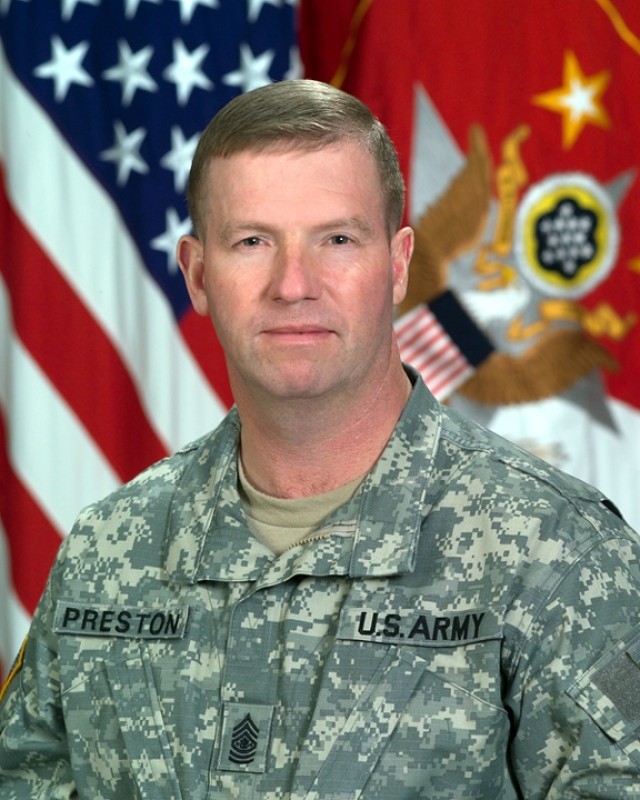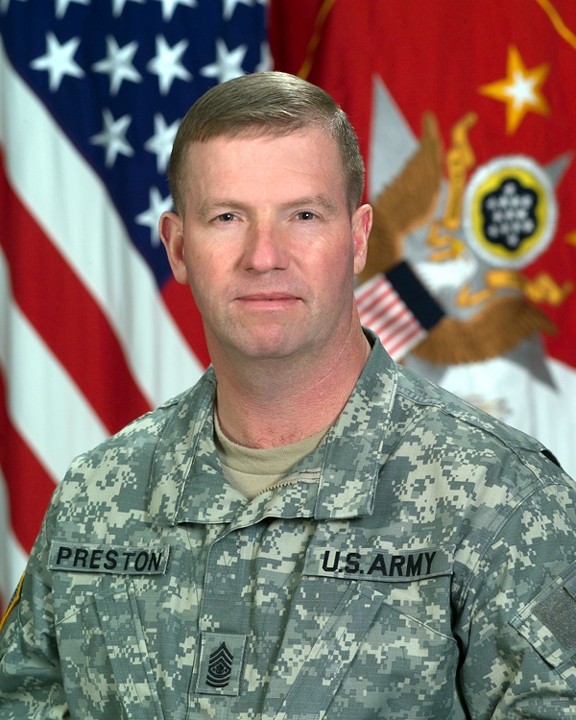The following are excerpts from a recent Year of the NCO blog at www.army.mil/yearofthenco.
NCOs as mentors
I was promoted to sergeant with only 24 months in the Army. I was not old enough to legally drink a beer in my hometown, and was in no way everything a sergeant should "be, know and do" on the day of my promotion. I was a good Soldier and did what I was told.
One of many secrets I learned during that time in my career came from my then-first sergeant, Gary P. Pastine. The peacetime Army during the Cold War had a requirement to conduct four hours of Noncommissioned Officer Professional Development training monthly. Pastine personally conducted one hour of training for all NCOs assigned to the company each week.
All of his lessons were lecture-style, directive and very specific on the standards he expected in the performance of our duties. Lessons included: "How to make a leader's notebook," "How to build an individual fighting position and establish a company defense," "How to perform monthly counseling," "How to inspect a Soldier's room," "How to write an NCOER and an award," and many more.
Pastine probably had four to six months of professional development lessons that were a mix of garrison and tactical tasks. Every class he taught was a learning experience and I always seemed to take something new away from his discussions. All of his tactical lessons were taught in the weeks and months prior to a deployment or major training event. His intent was to use the NCOPD lessons as a train the trainer platform to get all of his NCOs executing critical tasks to the same standard.
Sitting through those NCODP sessions with 1st Sgt. Pastine, I learned what a sergeant should "be, know and do," both in garrison and in the field. All of this was done through his personal example and "words of wisdom," that left the company better than when he arrived.
As an example, in our leader's notebook he expected us to know the birthdates of our Soldiers, including their spouses and children. He wanted us to know where our Soldiers called home, their parents and their siblings. He expected us to know our Soldiers' promotion timelines, levels of education, and at a minimum, their GT scores from their aptitude tests.
This knowledge armed us with the understanding of what motivated our Soldiers and we could use (it) in monthly counseling to help them set short- and long-term goals. We also knew how our Soldiers valued their roles in our small units and their value to their families at home, which became especially critical in growing compassionate leaders focused on excellence. I knew my Soldiers as well as I knew my own children.
I used these same principles as a platoon sergeant, first sergeant and command sergeant major, to teach all of my NCOPD lessons. The solution for many of the challenges leaders face in their units today is the simple sharing of knowledge and experience; teach your junior NCOs "what right looks like."
Thanks for all you do for the Army and this nation. Army Strong-hooah!
-Sergeant Major of the Army Kenneth O. Preston
You may never truly know the impact that you have on a Soldier, but as a noncommissioned officer, a leader, it has to be a positive one so that the NCO Corps can continue to be "The Backbone of the Army." The Soldiers that we influence on today will one day be in our position. The quality of the NCO Corps is in our hands and that is something that should never, ever be taken for granted.
-1st Sgt. James C. Jackson
I also got promoted to sergeant with 24 months in service. I was hesitant about getting pinned, because I felt like I didn't know anything. My NCO, then-Staff Sgt. Averill (now-chief warrant officer-3) sat me down and told me that he was going to guide me in the right direction and share his knowledge. He said that he had already reached his goals so he would step aside for me to reach mine.
-Staff Sgt. Dana Wiggins
Reading (the SMA's) message reminds me of many of my NCOs I worked for throughout my career. I have had some great NCOs like (his) first sergeant, and also some that have been less than stellar. I have tried to emulate those who gave the good examples and to constantly remind myself of those who did not, so that I would not make the same mistakes. It is a never-ending process to try to do things the right way all the time.
-Sgt. 1st Class Brian J. Gaddy


Social Sharing